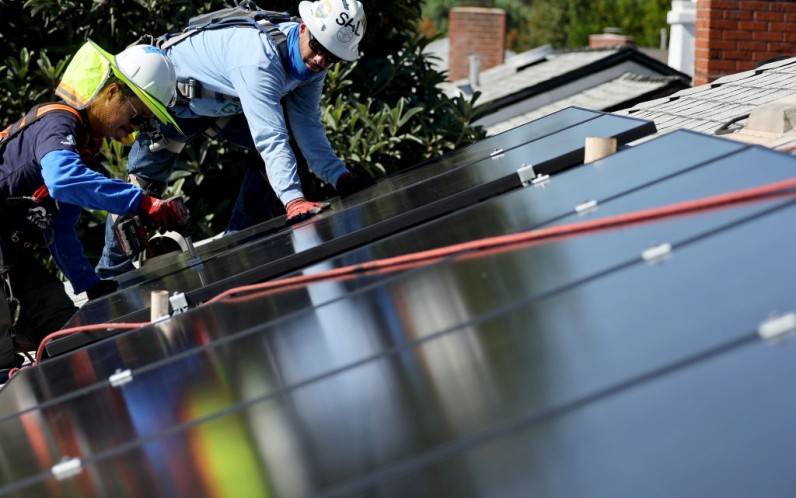
The Biden Administration will reportedly eliminate a trade exemption for bifacial solar panels imported to the United States.
According to a petition signed by multiple solar manufacturers in the US, bifacial solar panels, which can generate electricity from both sides of the panel, have seen a significant increase in imports and are no longer considered a niche technology.
US to Restore Tariffs on Chinese Solar Panels
In November 2021, the US Court of International Trade made a decision to reinstate the exemption of bifacial solar panels from the Section 201 tariffs.
The Solar Energy Industries Association (SEIA) celebrated the outcome as a victory for the industry, as it successfully maintained low costs for imported panels.
In June 2019, the exemption of bifacial panels was initially granted, but it was later revoked by the Trump Administration in October 2020.
The bifacial exemption is facing the possibility of being revoked once more, this time due to a petition by QCells, a company with a significant manufacturing presence in the United States, under the Biden Administration.
According to a report by Reuters, QCells, the solar division of Korean conglomerate Hanwha, recently submitted a formal petition to the US Trade Representative on Feb. 23, requesting the revocation of an exemption.
In a significant move, QCells revealed its plans to allocate over $2.5 billion towards the expansion of its operations in the United States. This investment is being hailed as a groundbreaking move in the US solar industry.
Impact of Tariffs on US Economy
If successful, it would position QCells as the pioneer in establishing a complete silicon-based solar supply chain in the country. In October 2023, the solar module factory in Dalton, Georgia completed its expansion, increasing its solar capacity by 2 GW. This expansion brings the factory's total output to over 5.1 GW.
The debate surrounding tariffs arises as Biden navigates the delicate balance between global politics and the condition of the US economy. The Biden administration has made efforts to reduce tensions with Beijing, following the previous round of Chinese tariffs implemented by Trump that nearly sparked a trade war.
The potential impact of tariffs on the US economy is a concern, as they could increase manufacturing costs and potentially lead to higher consumer prices. This could complicate Biden's efforts to address persistent inflation, according to The Washington Times.
Inflation has decreased since reaching its highest point of around 9% in the summer of 2022, but it is still at a high level. In a recent report by the Labor Department, it was found that prices in March were 3.5% higher compared to the same period last year.







Join the Conversation